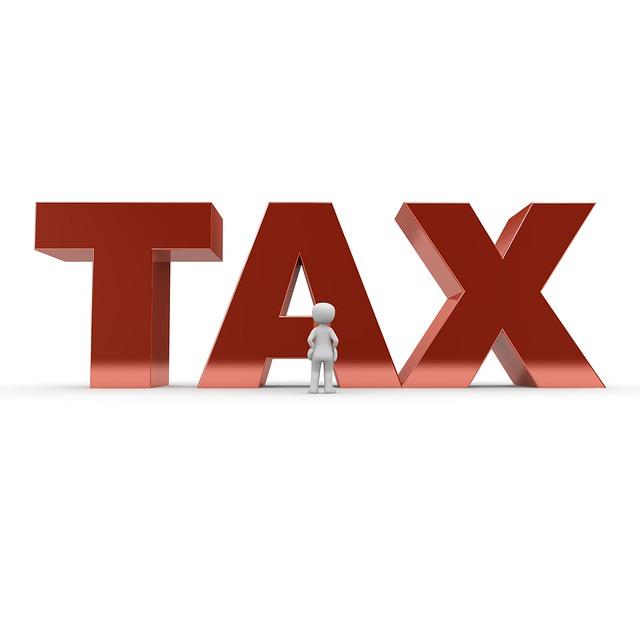As the golden years of retirement approach, the horizon is painted with dreams of leisure, exploration, and the cherished freedom to savor life’s simple pleasures. Yet, lurking in the shadows of this idyllic landscape is the often-unexpected specter of tax liabilities, threatening to nibble away at hard-earned nest eggs. It’s a concern that resonates deeply, for you’ve spent decades diligently saving, investing, and preparing for a future unburdened by financial stress. The good news is that with a bit of savvy planning and informed decision-making, it’s possible to illuminate your path with strategies that preserve your wealth and peace of mind. In this guide, we embark on a journey to explore the best ways to minimize tax liabilities in retirement, offering you the tools to navigate this complex terrain with confidence and care. Whether you’re just beginning to chart your course or are already enjoying the fruits of your labor, these insights are designed to empower you to protect your legacy and embrace the retirement of your dreams.
Shielding Your Nest Egg Understanding Tax Implications in Your Golden Years
As you transition into retirement, it’s crucial to navigate the intricate web of tax implications that could affect your savings. To help you maintain your hard-earned nest egg, consider these strategies to minimize tax liabilities:
- Roth IRA Conversions: Consider converting a portion of your traditional IRA into a Roth IRA. Although you’ll pay taxes on the converted amount, your future withdrawals will be tax-free, providing a cushion against rising tax rates.
- Strategic Withdrawals: Withdraw from taxable accounts first, allowing tax-deferred accounts to grow. This approach can potentially lower your taxable income and help you manage required minimum distributions (RMDs) more effectively.
- Tax-Efficient Investments: Opt for investments that generate lower taxable income, such as municipal bonds or index funds. These can help reduce your annual tax bill, leaving more money for your retirement pursuits.
By understanding these strategies, you can better protect your financial future and enjoy your golden years with peace of mind. Remember, a well-planned approach to taxes in retirement can significantly impact your overall financial well-being.
Crafting a Tax-Efficient Retirement Plan Tailored Strategies for Peace of Mind
As you embark on the journey of retirement, crafting a tax-efficient strategy becomes a cornerstone for sustaining your financial well-being. Tailoring your plan with a focus on minimizing tax liabilities can provide the peace of mind that every retiree deserves. Consider the timing of withdrawals from various accounts, such as traditional IRAs or 401(k)s, to manage your taxable income effectively. Leveraging Roth conversions during lower-income years can be a strategic move to reduce future tax burdens. Additionally, ensure you’re taking full advantage of the standard deduction and other available tax credits.
- Diversify income sources: Balance between taxable, tax-deferred, and tax-free accounts.
- Strategically plan Social Security benefits: Timing your benefits can impact your tax situation significantly.
- Consider charitable contributions: Utilizing Qualified Charitable Distributions (QCDs) can be a tax-savvy way to give back.
- Stay informed: Regularly consult with a tax professional to adapt to changing tax laws and personal circumstances.
Each step taken towards a tax-efficient retirement is a step towards financial serenity, allowing you to focus on the joys and freedoms that this new chapter brings.
Maximize Your Savings with Smart Withdrawal Techniques
Approaching retirement can be both exciting and daunting, especially when it comes to managing your finances. One of the smartest strategies to ensure you keep more of your hard-earned money is by employing savvy withdrawal techniques. By carefully planning your withdrawals, you can significantly reduce your tax burden and maximize your savings. Here are some tips to help you navigate this critical aspect of retirement:
- Consider the Order of Withdrawals: Start by tapping into taxable accounts first. This allows your tax-deferred accounts, like IRAs and 401(k)s, to continue growing, giving you a larger nest egg in the future.
- Utilize Roth Accounts Wisely: Since withdrawals from Roth IRAs are generally tax-free, strategically using these accounts can help you manage your tax bracket during retirement.
- Keep an Eye on Required Minimum Distributions (RMDs): Once you hit age 73, you are required to start taking RMDs from most retirement accounts. Plan ahead to avoid penalties and to ensure these withdrawals fit into your tax strategy.
By adopting these thoughtful approaches, you can enjoy your retirement with less stress about taxes and more focus on what truly matters—your newfound freedom and peace of mind.
Navigating Tax Credits and Deductions A Compassionate Guide to Keeping More of Your Money
As you enter the golden years of retirement, it’s essential to make the most of every dollar. Understanding the intricacies of tax credits and deductions can significantly impact your financial well-being. While it might seem daunting, approaching this task with a bit of compassion and strategic thinking can make all the difference. Here are some key strategies to consider:
- Medical Expense Deductions: With healthcare costs often rising in retirement, you can leverage medical expense deductions. Keep track of all medical-related expenses, including premiums, treatments, and prescriptions, as they can add up to a significant deduction.
- Charitable Contributions: If giving back is part of your retirement plan, ensure your generosity is recognized through tax deductions. Document all contributions, whether monetary or in-kind, to reduce your taxable income effectively.
- Retirement Account Withdrawals: Be strategic with your retirement account withdrawals. Consider the timing and amount, as this can affect your tax bracket. Consulting with a financial advisor can help you optimize these withdrawals to minimize tax liabilities.
By understanding and utilizing these tax credits and deductions, you can protect more of your hard-earned money. Remember, the key is to stay informed and proactive, ensuring that your retirement years are as comfortable and stress-free as possible.


